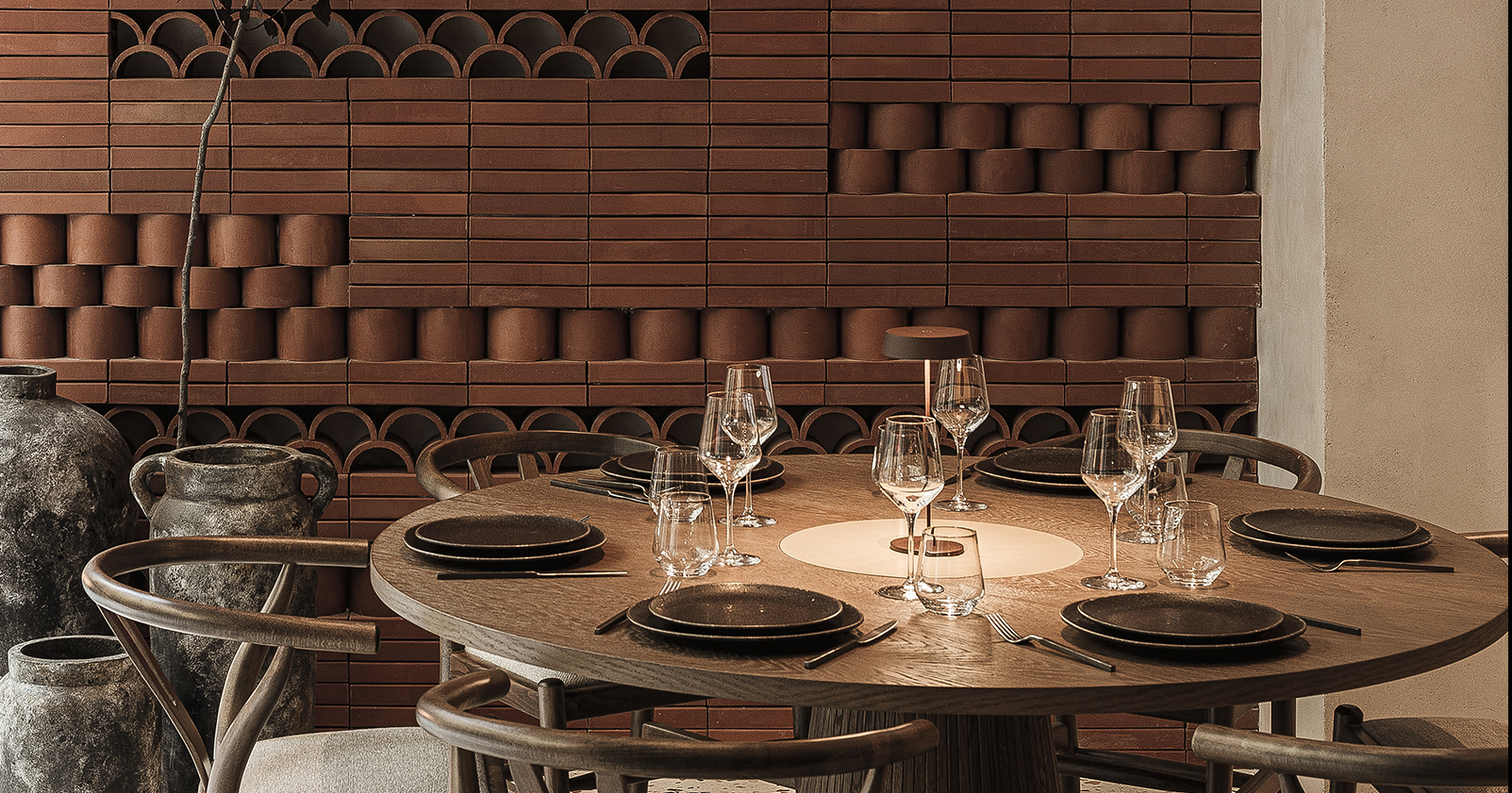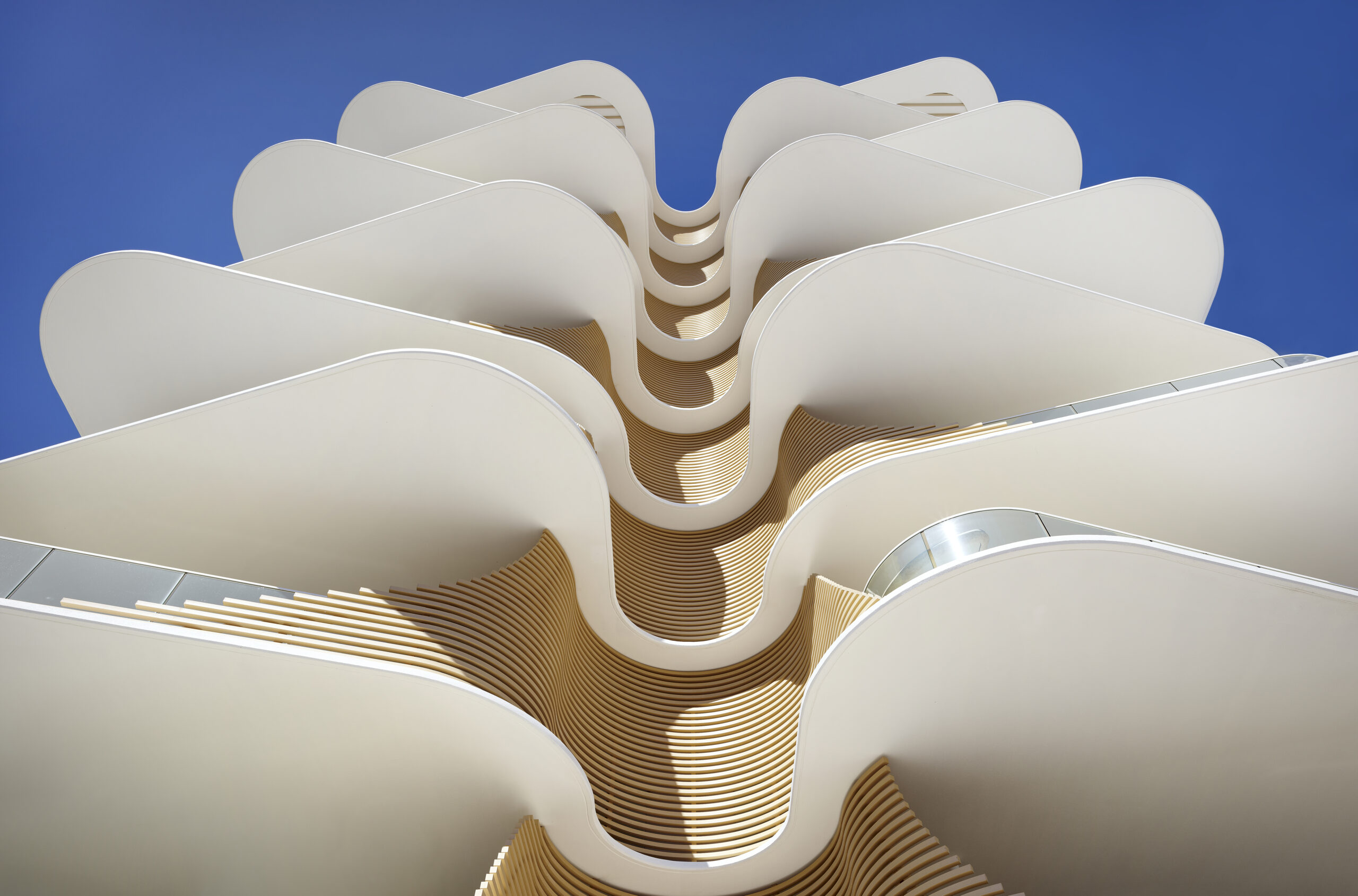Architects: Want to have your project featured? Showcase your work by uploading projects to Architizer and sign up for our inspirational newsletters.
Interior design reflects the values of modern life. Today, spaces are increasingly shaped by sustainability, wellness and new aesthetic approaches as designers draw from local contexts. From the choice of materials to the integration of biophilic elements, designers are crafting environments that reflect a deep connection to nature and a commitment to enhancing the well-being of their occupants. The convergence of technology and craftsmanship is where interior design is creating new experiences.
This year’s Architizer A+ Awards spotlight the best of these global trends, recognizing excellence in interior design that pushes boundaries and redefines how we live and work. Celebrating projects from across the world, the A+Awards honor both established and emerging talent in the industry. Looking at Commercial and Transport Interiors categories, architects and designers have turned to natural and local materials to reduce environmental impact. Focus on wellness has brought new aesthetics, prioritizing calming, human-centered environments. Explore how the winning interior designs are as mindful as they are beautiful.
Bike Parking IJboulevard
By VenhoevenCS architecture+urbanism, Amsterdam, Netherlands
Jury Winner, Transport Interiors, 12th Annual A+Awards
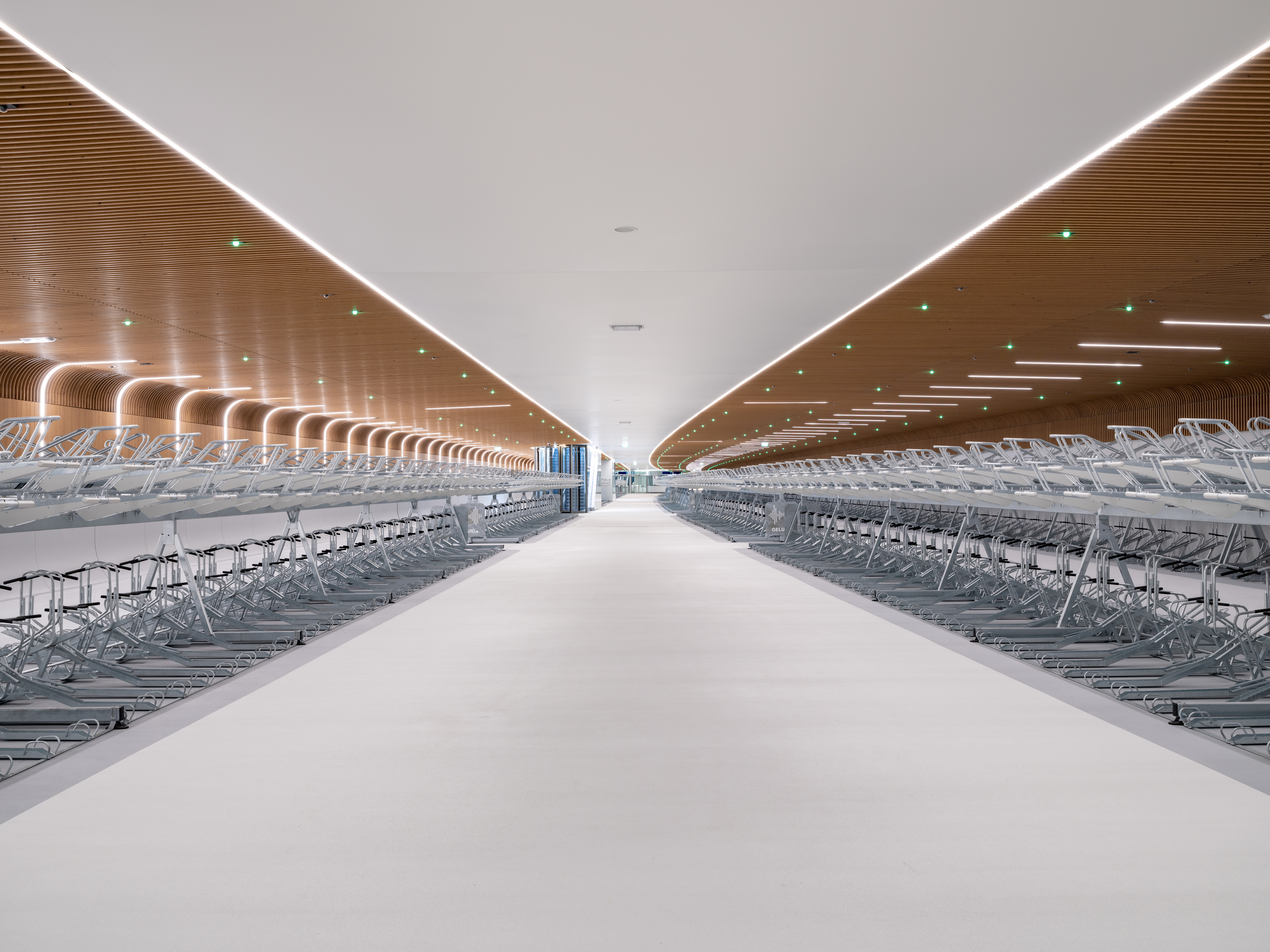

The IJboulevard, designed by VenhoevenCS architecture+urbanism in collaboration with Van Hattum en Blankevoort and DS Landscape architects, is a new underwater bike parking facility in the heart of Amsterdam. Located near Amsterdam Central Station, this innovative project accommodates over 4,000 bicycles and adds public space above ground. The roof of the facility forms a new boulevard along the river IJ, creating a vibrant walkway with seating and river views.
The interior features flowing lines, wooden walls, and subtle lighting to create a warm, inviting atmosphere. Sustainable design elements like low-energy consumption, biodiversity-promoting features, and eco-friendly materials enhance the overall impact of the project, which improves both infrastructure and public space in the city.
Monasty
By Not a Number Architects, Thessaloniki, Greece
Jury Winner, Commercial Interiors (>25,000 sq ft.), 12th Annual A+Awards
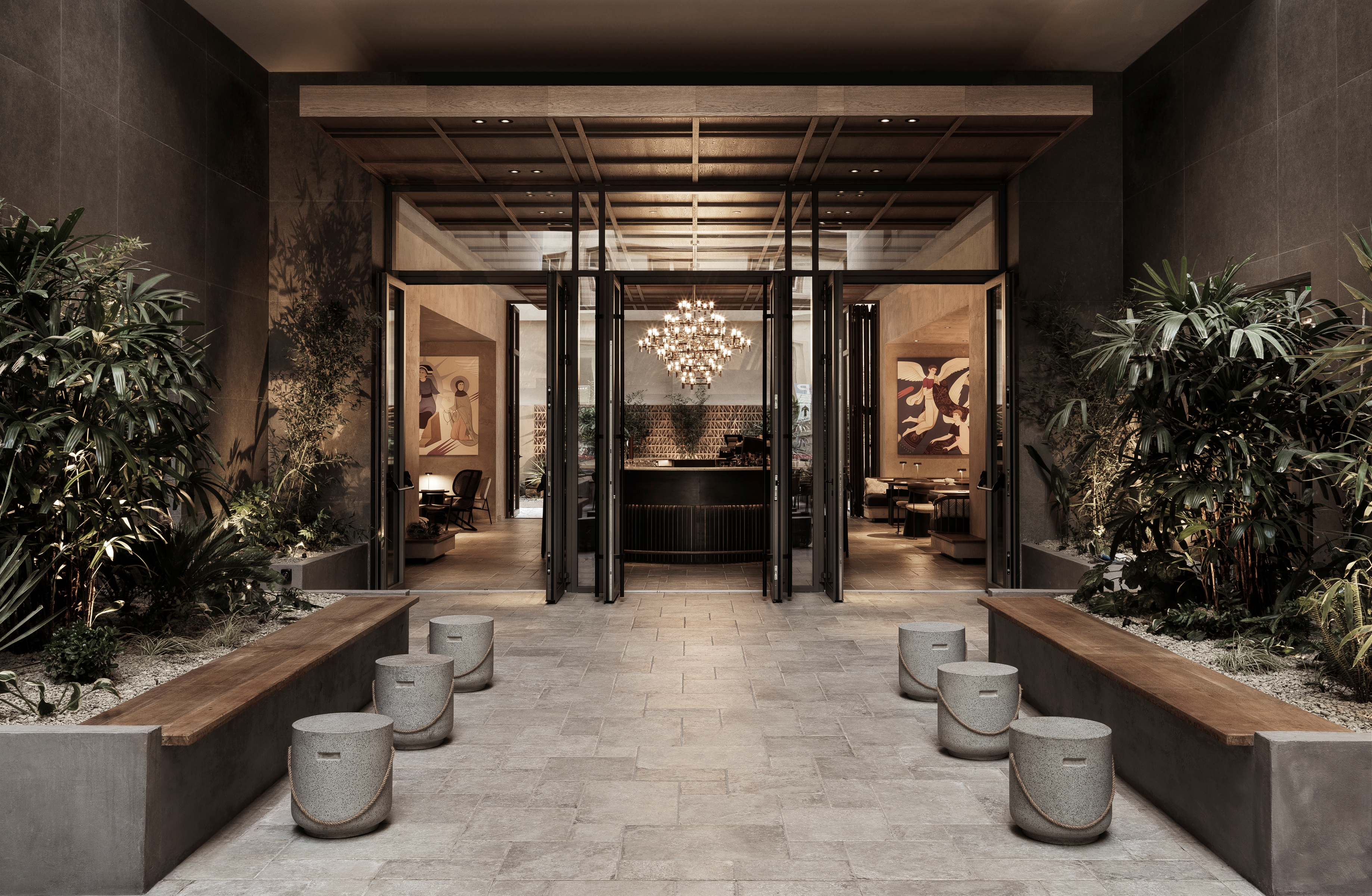
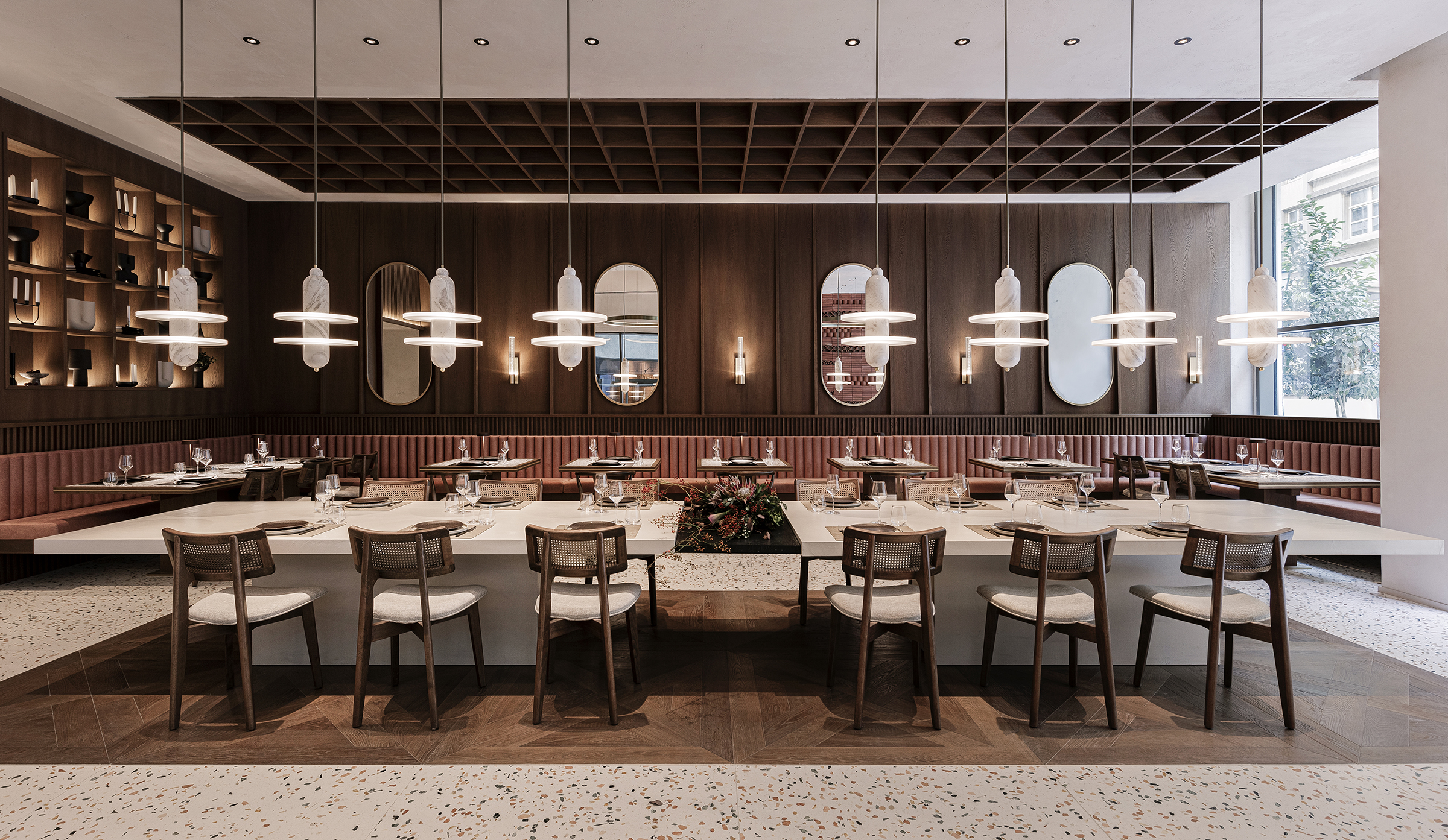 Monasty’s interior design merges the Byzantine heritage of Thessaloniki with the luxury of the Autograph Collection by Marriott. Drawing inspiration from the city’s rich history and its surviving Christian Orthodox temples, the hotel offers a mystical atmosphere. Its 100 rooms and common spaces feature an austere materiality, subtle lighting and a monastic aesthetic that balances the high-end amenities of a 5-star hotel.
Monasty’s interior design merges the Byzantine heritage of Thessaloniki with the luxury of the Autograph Collection by Marriott. Drawing inspiration from the city’s rich history and its surviving Christian Orthodox temples, the hotel offers a mystical atmosphere. Its 100 rooms and common spaces feature an austere materiality, subtle lighting and a monastic aesthetic that balances the high-end amenities of a 5-star hotel.
The design incorporates symmetry, with a bar at the center emulating the nave of Byzantine temples, accentuated by a grand wooden ceiling, brass-coated chandeliers and Byzantine-inspired stone flooring. Warm, tactile materials like weathered leather and brushed wood, along with site-specific Byzantine murals, create a rich sensory experience. The secret garden, with its greenery and water features, further enhances the peaceful retreat from the bustling city.
Publicis Groupe, Le Truc
By Architecture Plus Information (A+I), New York City, New York
Jury Winner, Commercial Interiors (<25,000 sq ft.), 12th Annual A+Awards
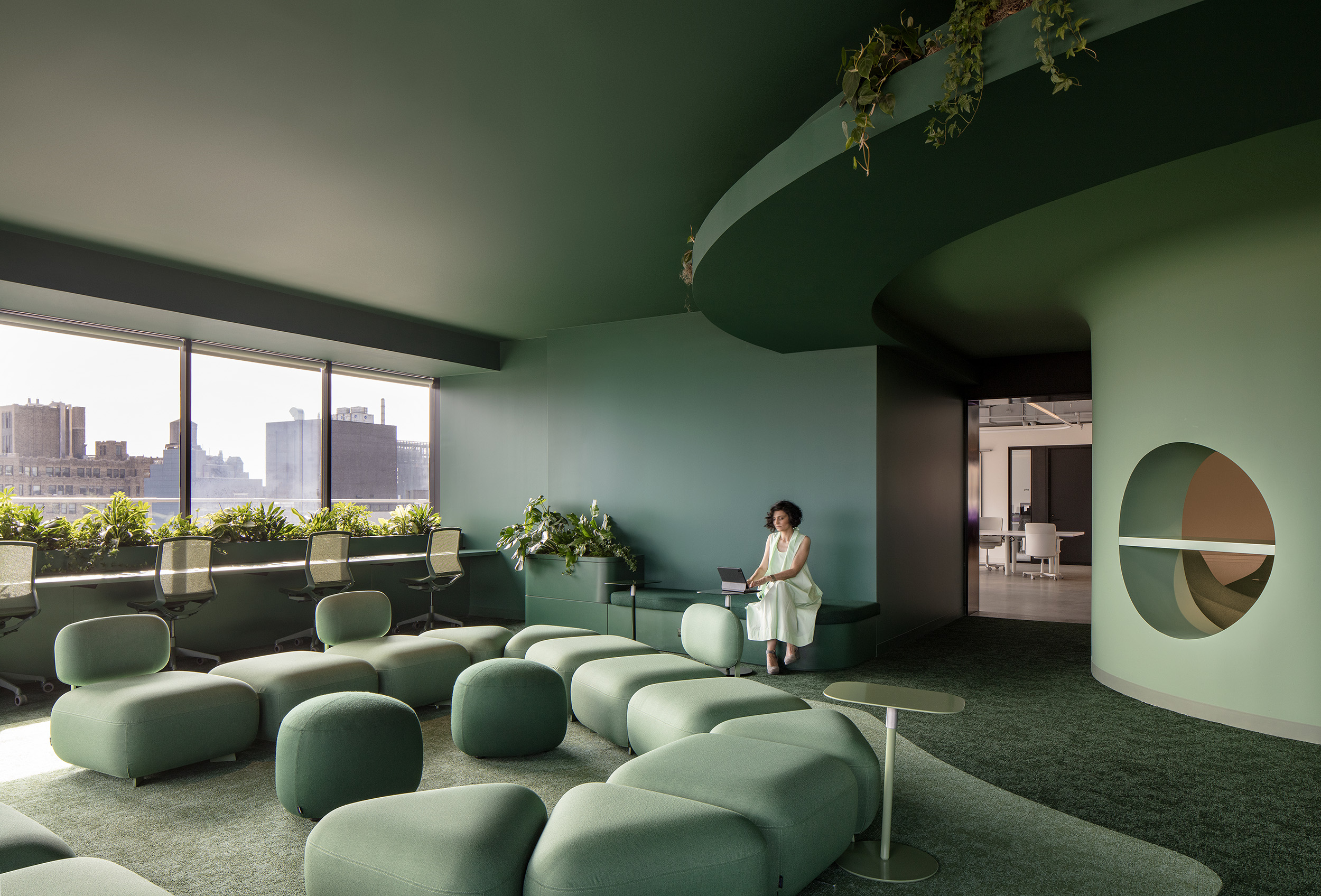
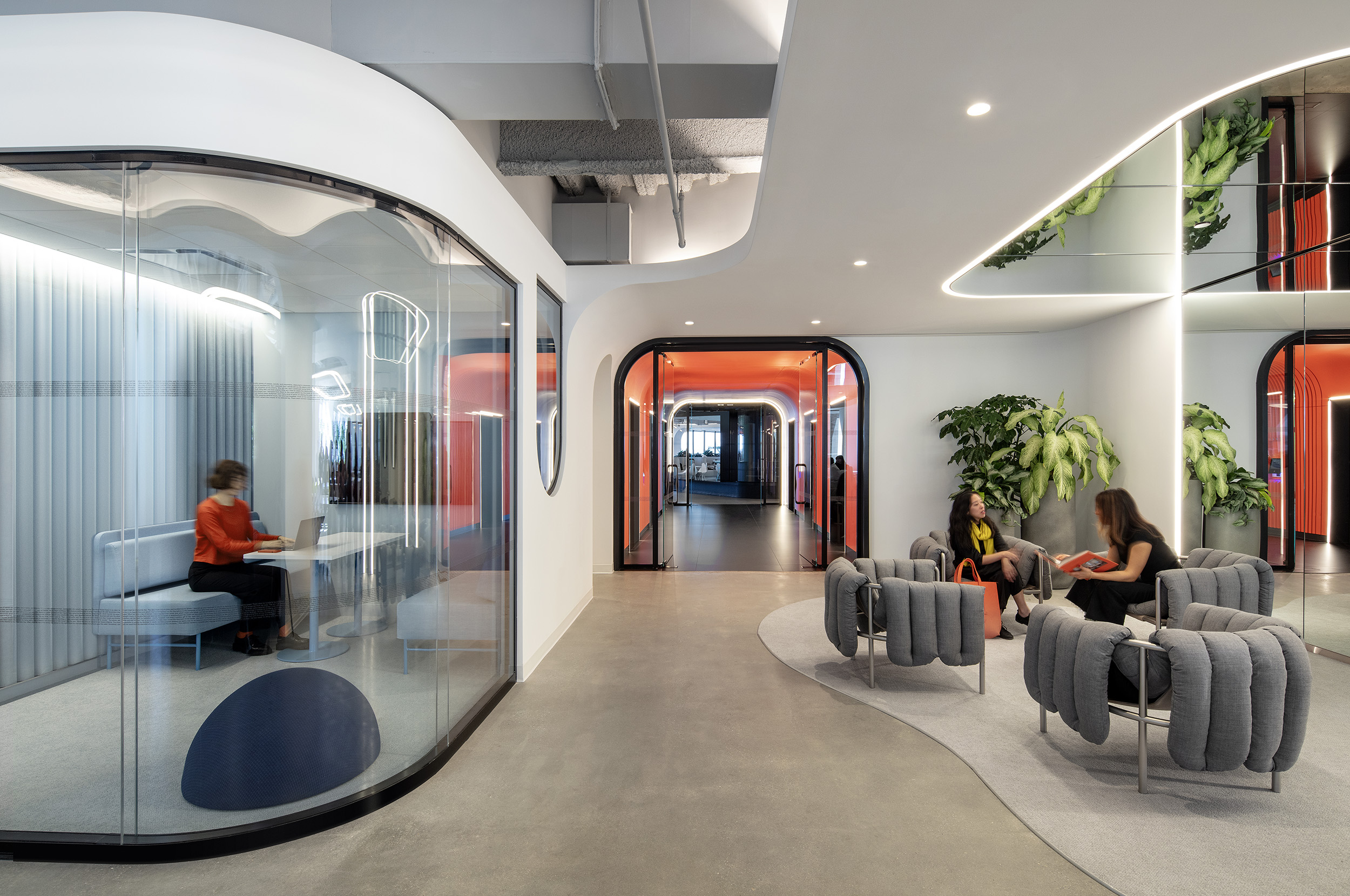
A+I partnered with Publicis Groupe to create a dynamic “Clubhouse” for their creative collective, Le Truc, in New York City. This innovative space, designed to fuel creativity, offers a variety of non-deterministic environments — bullpens, libraries, auditoriums, nooks and lounges — that cater to different creative processes.
Anchored by a café and work lounges, the space generates collective energy and celebrates individuality with diverse colors, lighting, and design elements. Le Truc serves as a proof of concept for the future of work, showing how an office can be a strategic tool for large-scale organizations post-pandemic.
OFFICE @ 63
By Sanjay Puri Architects, Navi Mumbai, India
Popular Choice Winner, Commercial Interiors (<25,000 sq ft.), 12th Annual A+Awards
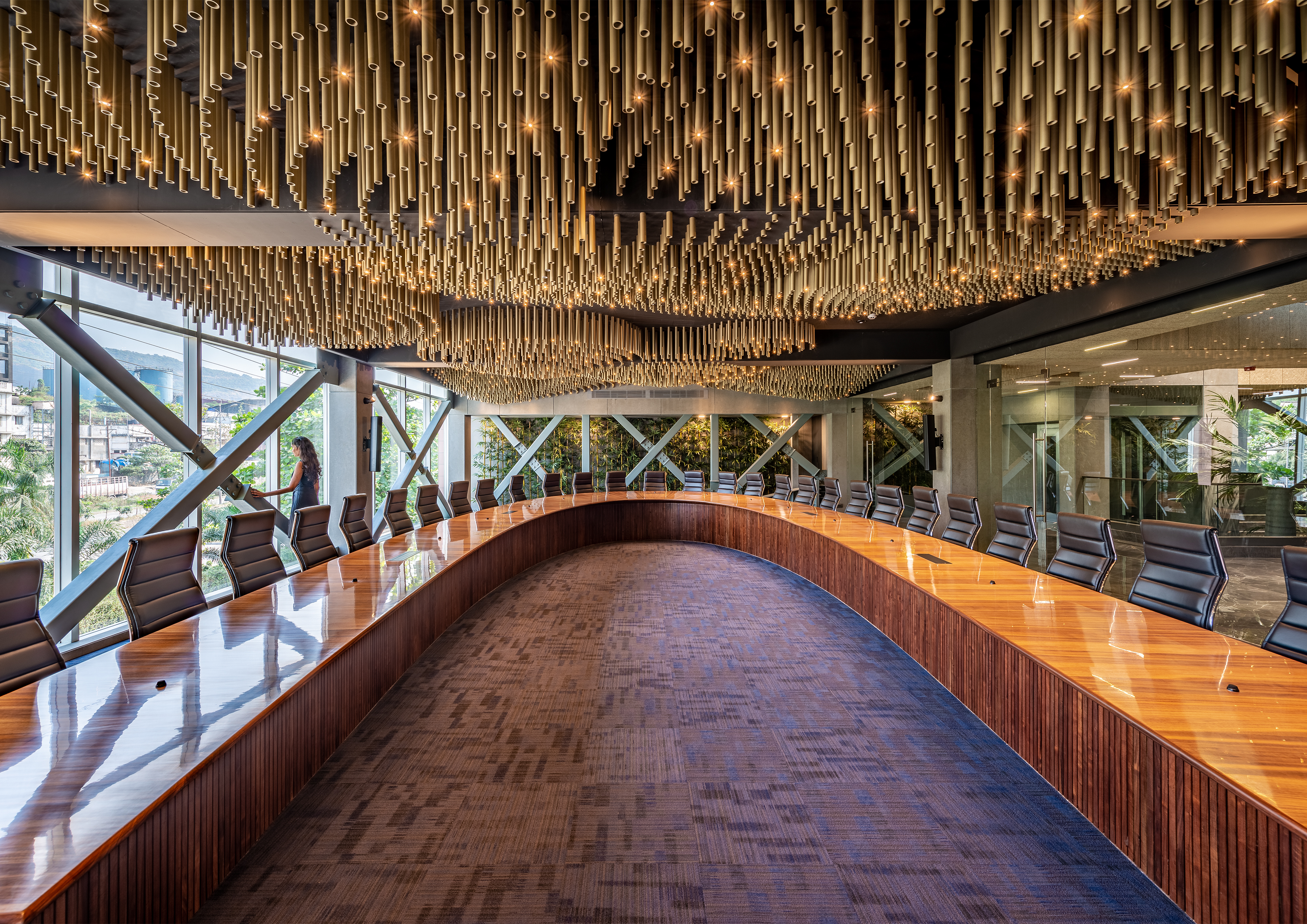
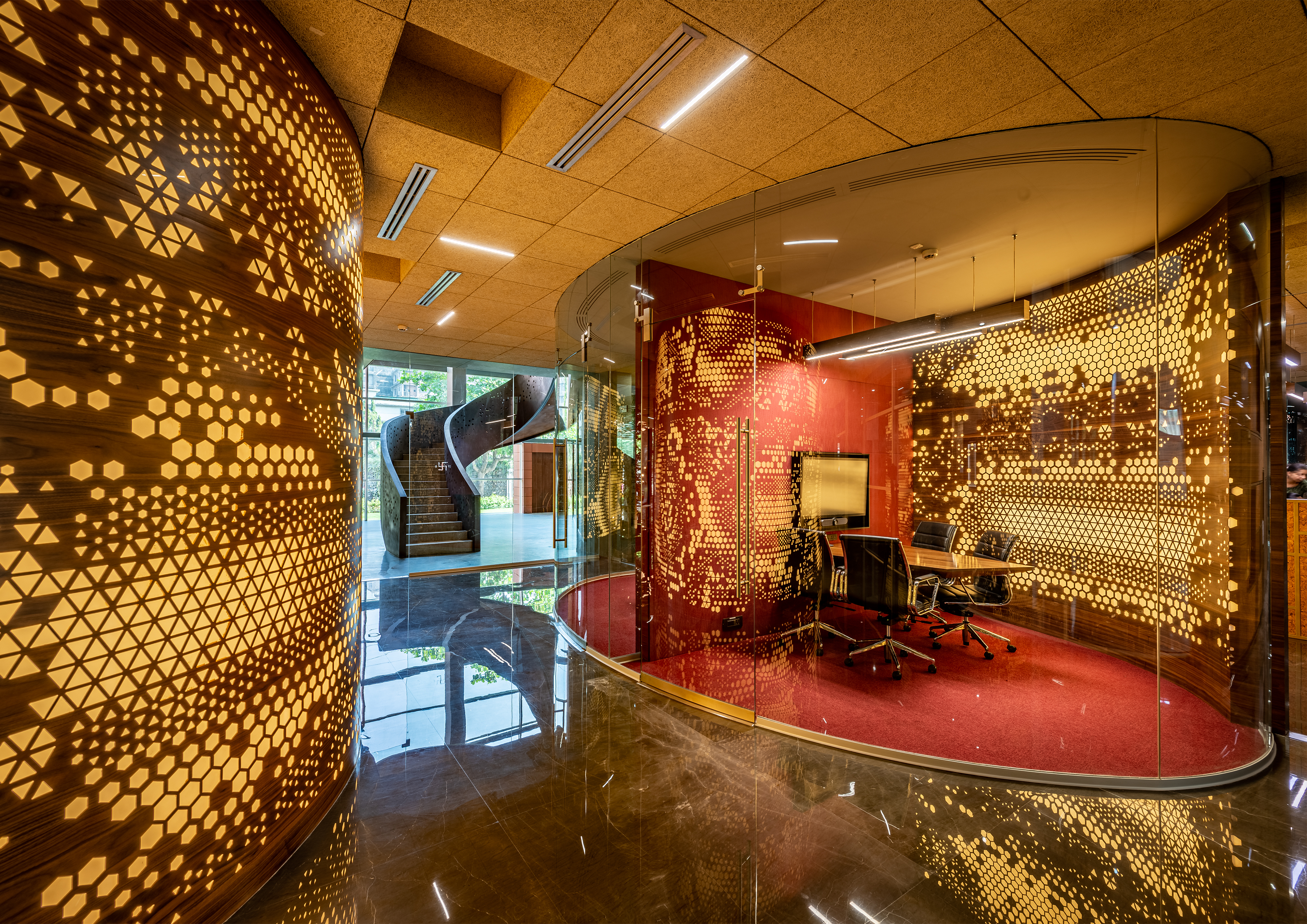
This office for a furniture contract company, located within their factory, features a series of architectural volumes that give each space its own identity. A large reception area is highlighted by a 36-foot-high (11 meters) seating area with elliptical pods floating in a reflecting pool at one end and a landscaped courtyard at the other. A multifunctional space with movable modular platforms serves as a furniture display, seminar hall or social area, connected by a sweeping cantilevered stairway.
The office’s elliptical volumes create organic circulation, with a varied material palette of glass, wood, metallic paint, cork and concrete. Integrated lighting enhances features like perforated partitions, pyramid ceilings and aluminum installations, while large openings allow natural light and views of the factory. Each functional area, including workstations, conference rooms and discussion rooms, is uniquely designed and arranged across three levels.
U.S Bank Center
By SkB Architects, Seattle, Washington
Popular Choice Winner, Commercial Interiors (>25,000 sq ft.), 12th Annual A+Awards
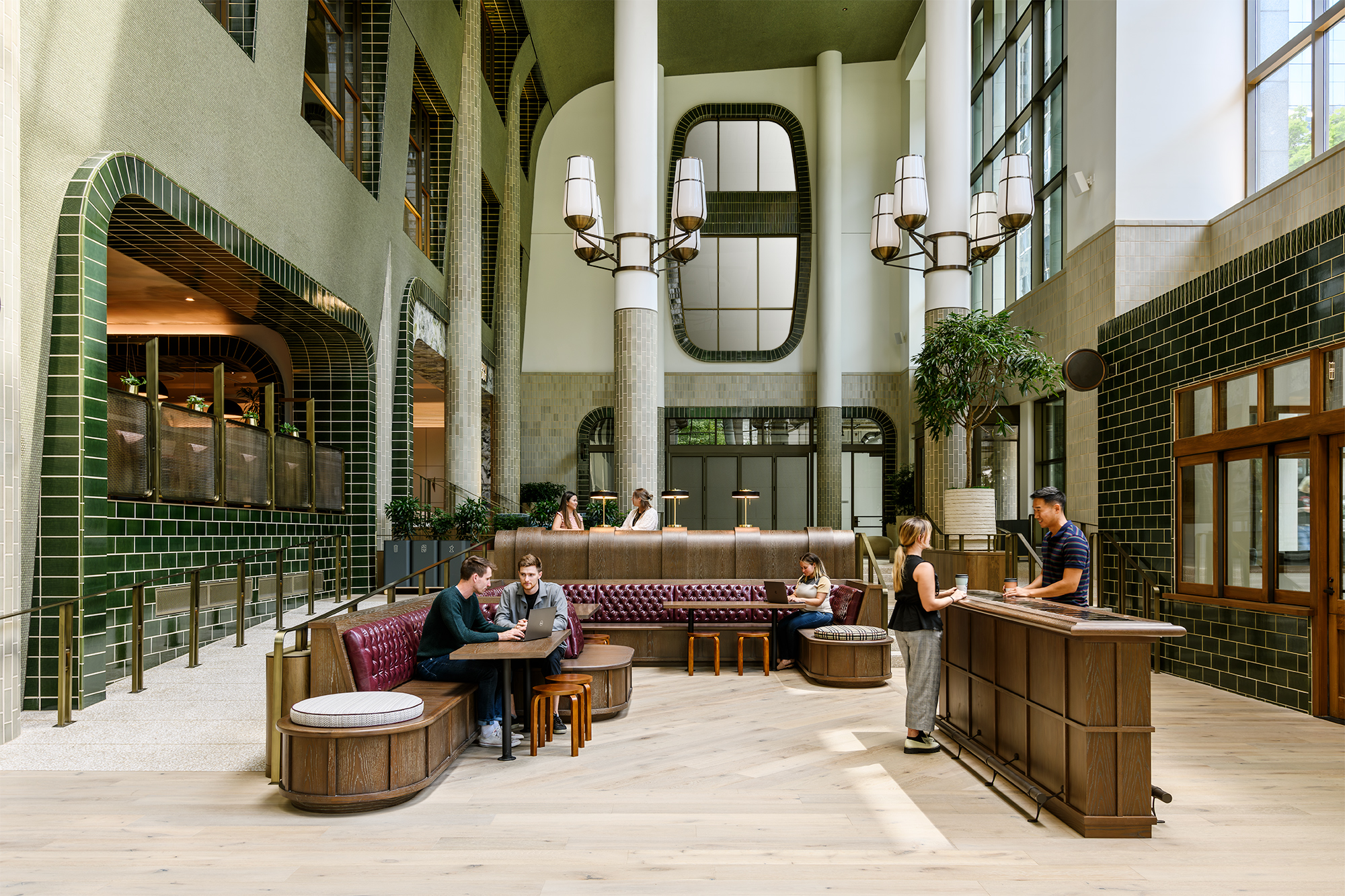
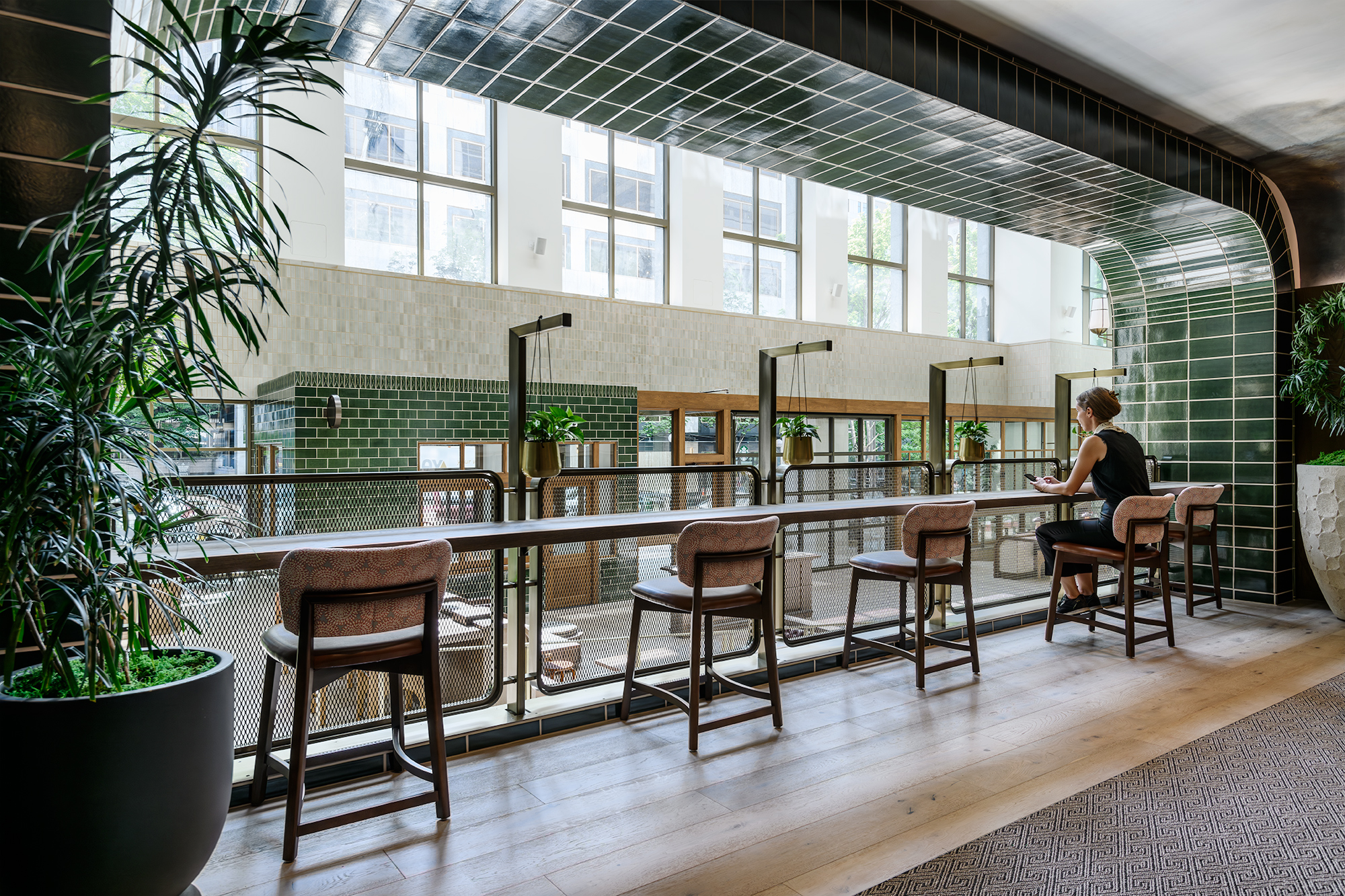 The revitalization of the 44-story U.S. Bank Center transforms the iconic building into a vibrant workplace and welcoming public space. At its heart, Cedar Hall replaces the previously cramped atrium with an open, inviting expanse featuring 3.6 million green penny tiles that reflect sunlight. Operable doors, accessible seating, and dynamic indoor streetscapes foster connection, while the Tower Lobby guides visitors through curated art and adaptable settings.
The revitalization of the 44-story U.S. Bank Center transforms the iconic building into a vibrant workplace and welcoming public space. At its heart, Cedar Hall replaces the previously cramped atrium with an open, inviting expanse featuring 3.6 million green penny tiles that reflect sunlight. Operable doors, accessible seating, and dynamic indoor streetscapes foster connection, while the Tower Lobby guides visitors through curated art and adaptable settings.
The Spruce Room, a cozy haven overlooking Cedar Hall, offers lounge seating and workspaces. The redesign emphasizes accessibility, opening up street-level porosity and clarifying boundaries between public and private spaces. This revitalized hub blends work, relaxation, dining and shopping into a seamless experience for tenants and the community.
Changi Airport Terminal 2
By BOIFFILS Architectures, Singapore
Popular Choice Winner, Transport Interiors, 12th Annual A+Awards
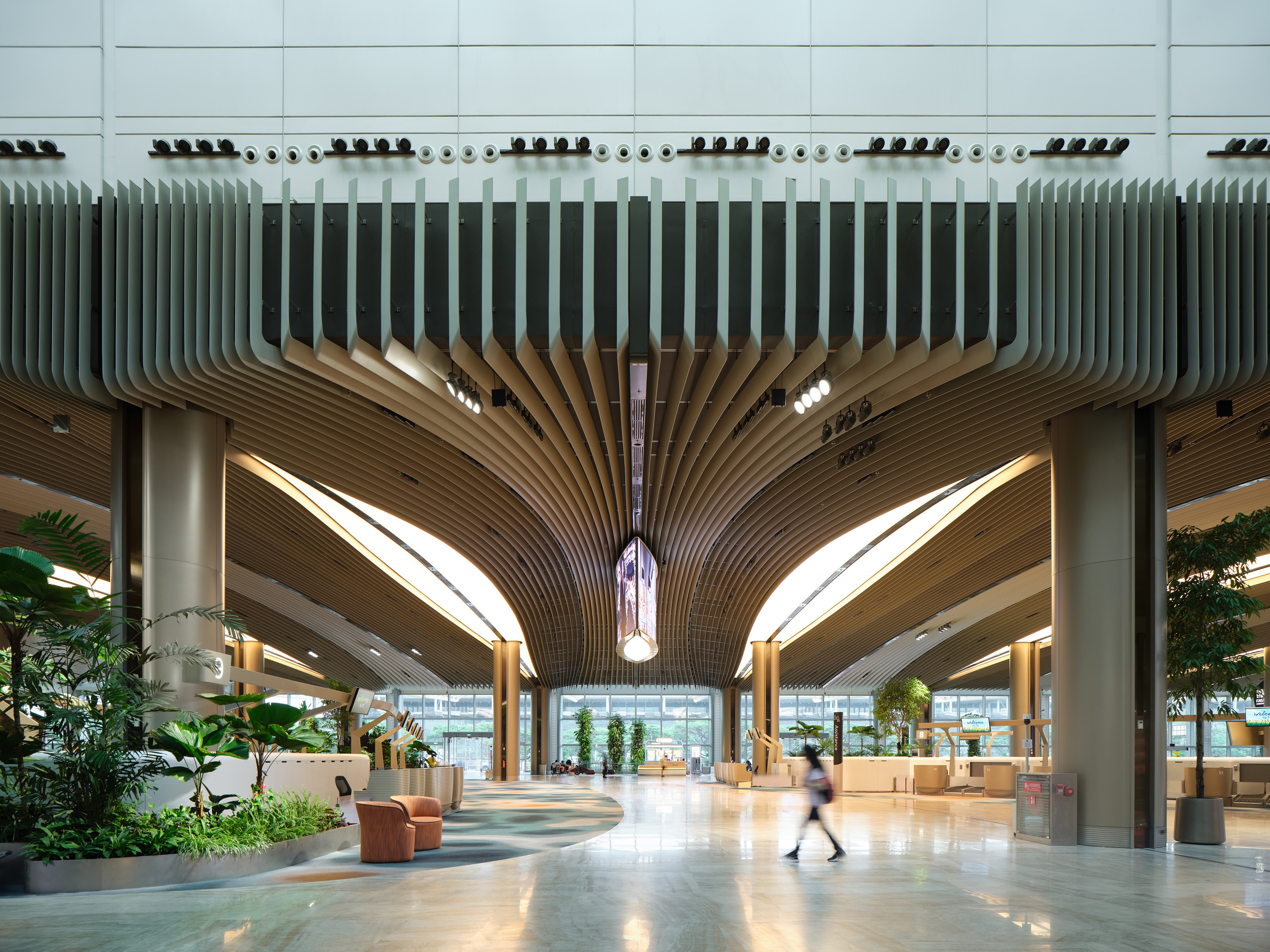
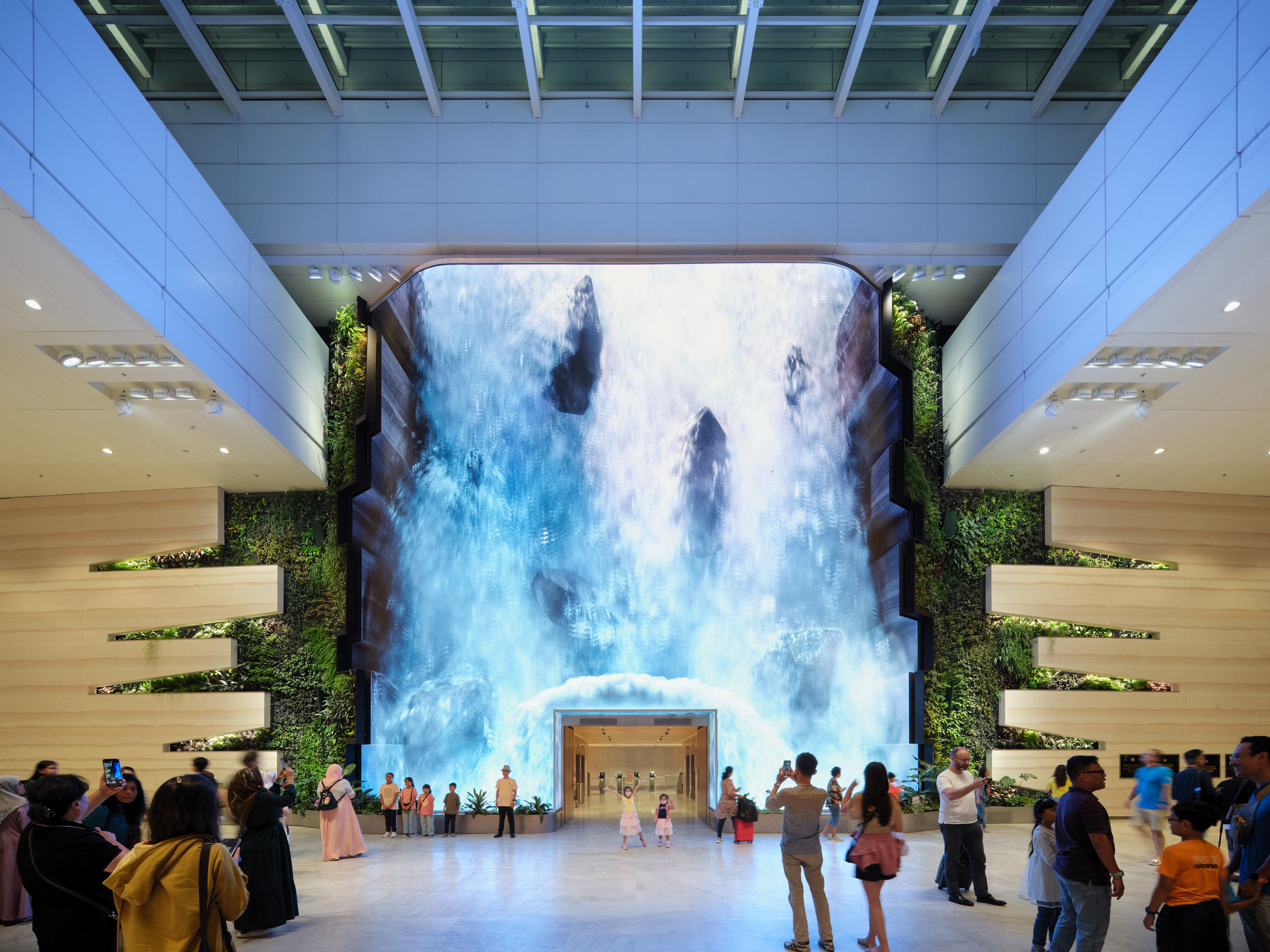 The expansion and renovation of Terminal 2 at Singapore’s Changi Airport spans across three levels, with a design prioritizing the traveler experience through calming visual, auditory, and interactive elements. Inspired by nature, the terminal features indoor landscapes with minerals, water features, and lush vegetation to create a serene, multi-sensory environment.
The expansion and renovation of Terminal 2 at Singapore’s Changi Airport spans across three levels, with a design prioritizing the traveler experience through calming visual, auditory, and interactive elements. Inspired by nature, the terminal features indoor landscapes with minerals, water features, and lush vegetation to create a serene, multi-sensory environment.
The departure hall emphasizes transparency and smooth circulation to reduce travel anxiety, offering panoramic views and vegetated walls that blur the line between architecture and landscape. The project balances technology and nature, highlighted by immersive installations like Wonderfall and Dreamscape, which provide a tranquil escape for layover passengers.
Architects: Want to have your project featured? Showcase your work by uploading projects to Architizer and sign up for our inspirational newsletters.
